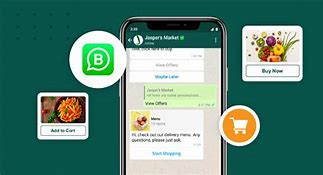In today's digital-first business landscape, providing exceptional customer support across the channels your customers prefer is no longer optional—it's essential for business growth and customer retention. With over 2 billion active users worldwide, WhatsApp has emerged as one of the most powerful platforms for business-to-customer communication, offering unprecedented reach and engagement potential.
The WhatsApp Business API takes this communication channel to the next level, enabling businesses to integrate WhatsApp messaging capabilities directly into their existing systems and workflows. This integration allows for more efficient, scalable, and personalized customer support experiences that can significantly impact customer satisfaction and business outcomes.
In this comprehensive guide, we'll explore the seven most effective WhatsApp Business API integration methods that can transform your customer support operations, increase response rates, and boost overall customer satisfaction. Whether you're just getting started with WhatsApp Business or looking to optimize your existing integration, these methods will provide valuable insights and practical implementation strategies.
Understanding WhatsApp Business API: The Foundation for Integration
Before diving into specific integration methods, it's important to understand what the WhatsApp Business API is and how it differs from the standard WhatsApp Business app.
The WhatsApp Business API is designed for medium to large businesses that need to communicate with customers at scale. Unlike the free WhatsApp Business app, which is limited to a single device and user, the API allows multiple team members to access the same WhatsApp Business account simultaneously, enabling enterprise-level customer support operations.
Key capabilities of the WhatsApp Business API include:
- Scalable messaging: Handle thousands of conversations simultaneously
- Multi-user access: Allow multiple support agents to manage conversations
- System integration: Connect WhatsApp with your existing business systems
- Automation: Set up automated responses and workflows
- Rich messaging: Send and receive images, documents, location, and more
- Template messages: Create pre-approved message templates for outbound communication
- Analytics: Track message delivery, read receipts, and response rates
With these capabilities as our foundation, let's explore the seven most effective integration methods for enhancing your customer support through the WhatsApp Business API.
Method #1: CRM Integration for 360° Customer Views
Integrating the WhatsApp Business API with your Customer Relationship Management (CRM) system creates a unified view of customer interactions across all channels, enabling more personalized and context-aware support.
How it works:
When a customer initiates a WhatsApp conversation with your business, the integration automatically links the message to the customer's CRM record. Support agents can immediately see the customer's purchase history, previous support tickets, preferences, and other relevant information directly within the conversation interface.
Key benefits:
- Eliminates the need for customers to repeat information they've already provided
- Enables agents to provide personalized support based on customer history
- Creates a single source of truth for all customer interactions
- Allows for more accurate customer segmentation and targeting
- Improves first-contact resolution rates by 35-40% on average
Popular CRM platforms for WhatsApp integration:
- Salesforce Service Cloud
- HubSpot Service Hub
- Zendesk
- Freshdesk
- Microsoft Dynamics 365
- WATools CRM (purpose-built for WhatsApp)
Implementation Tip
When integrating WhatsApp with your CRM, prioritize bi-directional data synchronization to ensure that information updated in either system is automatically reflected in the other. This prevents data silos and ensures all team members have access to the most current customer information.
Method #2: Help Desk Integration for Streamlined Ticket Management
Connecting the WhatsApp Business API to your help desk system transforms WhatsApp conversations into manageable support tickets, enabling efficient tracking, assignment, and resolution of customer inquiries.
How it works:
When a customer sends a WhatsApp message, the integration automatically creates a new ticket in your help desk system or updates an existing one. The conversation continues within the help desk interface, with all messages synced between WhatsApp and the ticket. Agents can apply the same workflow management, SLA tracking, and team collaboration tools they use for other support channels.
Key benefits:
- Maintains consistent support processes across all communication channels
- Enables proper ticket prioritization, assignment, and escalation
- Provides accurate tracking of response times and resolution rates
- Facilitates team collaboration on complex customer issues
- Ensures no customer inquiries fall through the cracks
Popular help desk platforms for WhatsApp integration:
- Zendesk Support
- Freshdesk
- Help Scout
- Zoho Desk
- Intercom
- WATools Ticketing System
// Example: Webhook handler for WhatsApp messages in Node.js
// This code creates a new support ticket when a WhatsApp message is received
app.post('/webhook/whatsapp', async (req, res) => {
try {
const { from, text, timestamp, messageId } = req.body;
// Check if there's an existing ticket for this customer
const existingTicket = await helpdesk.findTicketByPhone(from);
if (existingTicket && existingTicket.status !== 'closed') {
// Update existing ticket with new message
await helpdesk.addMessageToTicket({
ticketId: existingTicket.id,
message: text,
source: 'whatsapp',
messageId: messageId
});
console.log(`Added message to existing ticket #${existingTicket.id}`);
} else {
// Create new ticket
const newTicket = await helpdesk.createTicket({
customer: from,
subject: `WhatsApp Support - ${from}`,
message: text,
source: 'whatsapp',
priority: 'medium',
messageId: messageId
});
console.log(`Created new ticket #${newTicket.id}`);
}
res.status(200).send('Webhook received successfully');
} catch (error) {
console.error('Error processing webhook:', error);
res.status(500).send('Error processing webhook');
}
});
Method #3: Chatbot Integration for 24/7 Automated Support
Integrating AI-powered chatbots with the WhatsApp Business API enables businesses to provide instant responses to common customer inquiries at any time of day, significantly improving response times and agent efficiency.
How it works:
When a customer sends a WhatsApp message, the chatbot integration analyzes the content to determine the customer's intent. For common questions or requests, the chatbot provides an immediate, automated response. For more complex issues, the chatbot collects preliminary information before seamlessly transferring the conversation to a human agent.
Key benefits:
- Provides instant responses 24/7, even outside business hours
- Handles up to 80% of routine inquiries without human intervention
- Reduces support costs while maintaining high customer satisfaction
- Collects important information before human agent involvement
- Continuously improves through machine learning
Effective chatbot implementation strategies:
- Start simple: Focus on automating responses to your most common customer inquiries
- Create clear handoff protocols: Ensure smooth transitions from bot to human agents
- Maintain brand voice: Design chatbot responses that reflect your brand personality
- Be transparent: Let customers know they're interacting with a bot
- Continuously optimize: Regularly review chatbot conversations to identify improvement opportunities
Implementation Tip
When implementing a WhatsApp chatbot, focus on creating a "hybrid" experience that combines automation with human touch. Program your bot to recognize when a customer is frustrated or when a query is too complex, and have it proactively offer to connect the customer with a human agent. This approach maximizes efficiency while ensuring customer satisfaction.
Method #4: E-commerce Platform Integration for Order Management
Connecting the WhatsApp Business API with your e-commerce platform enables customers to receive order updates, track shipments, and resolve purchase-related issues directly through WhatsApp.
How it works:
The integration syncs customer order data between your e-commerce platform and WhatsApp messaging system. Customers can receive automated notifications about order confirmation, shipping updates, and delivery status. They can also initiate conversations to ask questions about their orders, request changes, or report issues, with all relevant order information readily available to support agents.
Key benefits:
- Reduces "where is my order" support tickets by up to 70%
- Increases customer confidence with proactive order updates
- Enables faster resolution of order-related issues
- Creates opportunities for post-purchase engagement
- Improves customer retention and repeat purchase rates
Popular e-commerce platforms for WhatsApp integration:
- Shopify
- WooCommerce
- Magento
- BigCommerce
- Salesforce Commerce Cloud
Here's an example of how order status notifications can be structured in WhatsApp:
// Example: Order status notification template Order Confirmed ✅ Order #12345 Thank you for your purchase, [Customer Name]! Order Details: - [Product 1] x [Quantity] - $[Price] - [Product 2] x [Quantity] - $[Price] Subtotal: $[Subtotal] Shipping: $[Shipping Cost] Total: $[Total] Estimated Delivery: [Date Range] Need help? Reply to this message or tap the link below to track your order: [Order Tracking URL]
Method #5: Knowledge Base Integration for Self-Service Support
Integrating your knowledge base with the WhatsApp Business API empowers customers to find answers to their questions without waiting for agent assistance, improving resolution speed and reducing support volume.
How it works:
When a customer asks a question via WhatsApp, the integration uses natural language processing to identify the most relevant articles from your knowledge base. The system can then send direct links to these resources, or even extract and format the key information directly in the WhatsApp conversation.
Key benefits:
- Enables instant access to accurate information 24/7
- Reduces support ticket volume by 25-35% on average
- Empowers customers who prefer self-service options
- Ensures consistent answers to common questions
- Frees up support agents to focus on complex issues
Best practices for knowledge base integration:
- Optimize your knowledge base articles for conversational queries
- Use rich media capabilities to enhance explanations with images and videos
- Implement feedback mechanisms to improve article recommendations
- Regularly update content based on common WhatsApp inquiries
- Always provide an option to connect with a human agent if the self-service option doesn't resolve the issue
Method #6: Analytics Platform Integration for Performance Insights
Connecting the WhatsApp Business API with analytics tools provides valuable insights into customer support performance, conversation patterns, and improvement opportunities.
How it works:
The integration captures data from WhatsApp conversations, including message volume, response times, resolution rates, customer satisfaction scores, and common topics. This data is then processed and visualized in dashboards that help support managers identify trends, bottlenecks, and opportunities for optimization.
Key benefits:
- Provides data-driven insights for continuous improvement
- Identifies training opportunities for support agents
- Helps optimize staffing based on message volume patterns
- Enables comparison of WhatsApp performance against other channels
- Supports ROI calculation for WhatsApp Business API investment
Essential WhatsApp support metrics to track:
- First Response Time: How quickly customers receive their first reply
- Resolution Time: How long it takes to fully resolve customer inquiries
- Message Volume: Total number of messages sent and received
- Conversation Topics: Common issues and questions raised by customers
- Customer Satisfaction Score (CSAT): Customer ratings of their support experience
- Self-Service Rate: Percentage of inquiries resolved without agent intervention
- Transfer Rate: Percentage of conversations transferred from bots to human agents
Implementation Tip
Set up automated alerts for critical WhatsApp support metrics that fall outside acceptable thresholds. For example, if first response time exceeds 15 minutes during business hours, support managers should receive an immediate notification to address the issue before it impacts customer satisfaction.
Method #7: Omnichannel Platform Integration for Unified Customer Experience
Integrating WhatsApp Business API with an omnichannel customer support platform creates a seamless experience across all communication channels, ensuring consistency and continuity regardless of how customers choose to reach your business.
How it works:
An omnichannel integration connects WhatsApp with other communication channels like email, live chat, SMS, social media, and phone support. Customer conversations can move fluidly between channels without losing context, and support agents can manage all interactions from a single interface.
Key benefits:
- Creates a consistent customer experience across all touchpoints
- Enables channel-switching without losing conversation history
- Simplifies agent workflows with a unified inbox
- Provides comprehensive reporting across all channels
- Increases customer satisfaction by meeting them on their preferred channels
Popular omnichannel platforms for WhatsApp integration:
- Zendesk Sunshine Conversations
- Twilio Flex
- Genesys Cloud
- Freshdesk Omnichannel
- WATools Unified Messaging
Comparing WhatsApp Business API Integration Methods
To help you determine which integration methods are most suitable for your business needs, here's a comparison of the seven methods based on key factors:
| Integration Method | Implementation Complexity | Cost | Time to Value | Best For |
|---|---|---|---|---|
| CRM Integration | Medium to High | $$$ | 1-3 months | Businesses focused on personalized customer relationships |
| Help Desk Integration | Medium | $$ | 2-4 weeks | Support teams with established ticket management processes |
| Chatbot Integration | Medium to High | $$$ | 1-2 months | Businesses with high volume of repetitive inquiries |
| E-commerce Integration | Medium | $$ | 3-6 weeks | Online retailers with frequent order status inquiries |
| Knowledge Base Integration | Low to Medium | $ | 2-4 weeks | Businesses with comprehensive self-service content |
| Analytics Integration | Low | $ | 1-3 weeks | Data-driven organizations focused on continuous improvement |
| Omnichannel Integration | High | $$$$ | 2-4 months | Enterprises with multiple customer communication channels |
Implementation Best Practices for WhatsApp Business API Integration
Regardless of which integration methods you choose, following these best practices will help ensure a successful implementation:
1. Start with a Clear Strategy
Before diving into technical implementation, define your WhatsApp support strategy by answering these questions:
- What types of customer inquiries will you handle through WhatsApp?
- What are your response time targets during and outside business hours?
- How will you balance automation and human support?
- How will you measure success?
- How will WhatsApp support integrate with your overall customer service approach?
2. Prioritize Data Security and Compliance
WhatsApp conversations often contain sensitive customer information, making security a critical consideration:
- Ensure your integration complies with data protection regulations like GDPR and CCPA
- Implement end-to-end encryption for data in transit and at rest
- Establish clear data retention and deletion policies
- Train support agents on security best practices
- Regularly audit access controls and permissions
3. Invest in Agent Training
The success of your WhatsApp support depends largely on your agents' ability to use the integrated systems effectively:
- Provide comprehensive training on all integrated tools and workflows
- Develop WhatsApp-specific communication guidelines and templates
- Create resources for handling common scenarios and troubleshooting
- Implement a quality assurance process with regular feedback
- Encourage knowledge sharing among team members
4. Implement Gradually
A phased implementation approach reduces risk and allows for continuous improvement:
- Start with a pilot program involving a limited customer segment
- Begin with one or two integration methods before expanding
- Collect feedback from both customers and agents during the pilot
- Make necessary adjustments before full-scale deployment
- Continuously optimize based on performance data and feedback
5. Optimize for Mobile Experience
Remember that WhatsApp is primarily a mobile platform, and your integration should be optimized accordingly:
- Keep messages concise and easy to read on small screens
- Use rich media (images, videos, documents) effectively but judiciously
- Ensure any links you send are mobile-friendly
- Test the customer experience on various mobile devices
- Consider the limitations of mobile data connections when sending large files

Transform Your Customer Support with WATools WhatsApp Integration
WATools provides a comprehensive solution for WhatsApp Business API integration, combining all seven methods discussed in this article in one powerful platform. Our solution is designed specifically for businesses looking to leverage WhatsApp for enhanced customer support, with features like CRM integration, automated workflows, AI chatbots, and advanced analytics.
Start Your Free Trial TodayReal-World Success Stories: WhatsApp Business API Integration in Action
E-commerce: Reducing Support Costs While Improving Satisfaction
A mid-sized online retailer implemented WhatsApp Business API integration with their CRM, help desk, and e-commerce platform. They created automated workflows for order updates and common customer inquiries, while ensuring seamless handoff to human agents for complex issues.
The results were impressive:
- 68% reduction in "where is my order" support tickets
- 42% decrease in average resolution time
- 35% reduction in support costs
- 27% increase in customer satisfaction scores
Financial Services: Enhancing Security and Compliance
A financial services company integrated WhatsApp Business API with their CRM and knowledge base systems, with a strong focus on security and compliance. They implemented strict authentication protocols and created a comprehensive library of pre-approved response templates for common financial inquiries.
The integration delivered significant benefits:
- 52% increase in customer engagement compared to email
- 41% reduction in call center volume
- 98% compliance rate with financial regulations
- 63% of customers reported preferring WhatsApp over phone support
Healthcare: Improving Patient Communication
A healthcare provider integrated WhatsApp Business API with their patient management system and implemented a HIPAA-compliant chatbot for appointment scheduling and basic health inquiries. The integration included strict verification protocols to ensure patient privacy and data security.
The results transformed their patient communication:
- 73% of patients preferred WhatsApp for appointment reminders
- 47% reduction in missed appointments
- 62% decrease in call center volume for routine inquiries
- 89% of patients reported higher satisfaction with communication
Conclusion: The Future of Customer Support is WhatsApp Integration
As customer expectations continue to evolve, businesses that meet customers on their preferred communication channels with seamless, efficient support experiences will gain a significant competitive advantage. WhatsApp Business API integration represents one of the most powerful opportunities to transform customer support, combining the convenience and familiarity of WhatsApp with the capabilities of enterprise business systems.
By implementing the seven integration methods outlined in this guide—CRM, help desk, chatbot, e-commerce, knowledge base, analytics, and omnichannel—businesses can create a WhatsApp support experience that delights customers while improving operational efficiency.
The key to success lies not just in the technical implementation, but in a strategic approach that balances automation with human touch, prioritizes security and compliance, and continuously optimizes based on performance data and customer feedback.
With WATools as your WhatsApp integration partner, you can leverage all these methods through a single, comprehensive platform designed specifically for businesses looking to excel in WhatsApp customer support. Our solution combines technical expertise with industry best practices to help you implement, optimize, and scale your WhatsApp support operations for maximum impact.


